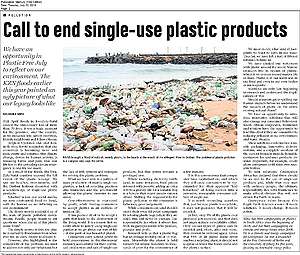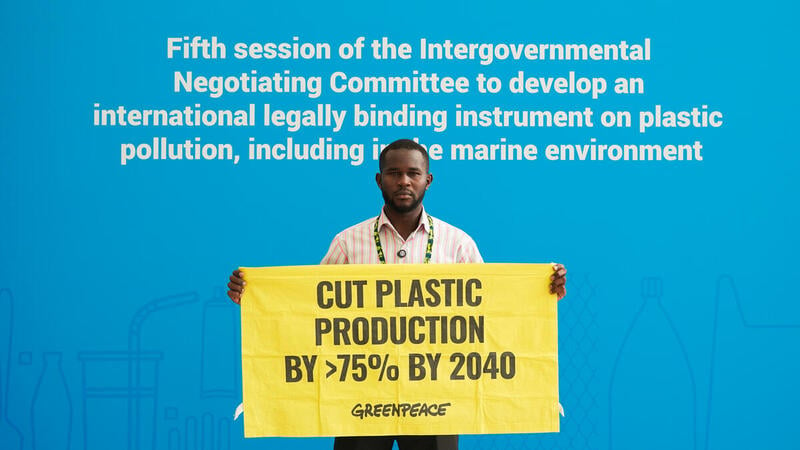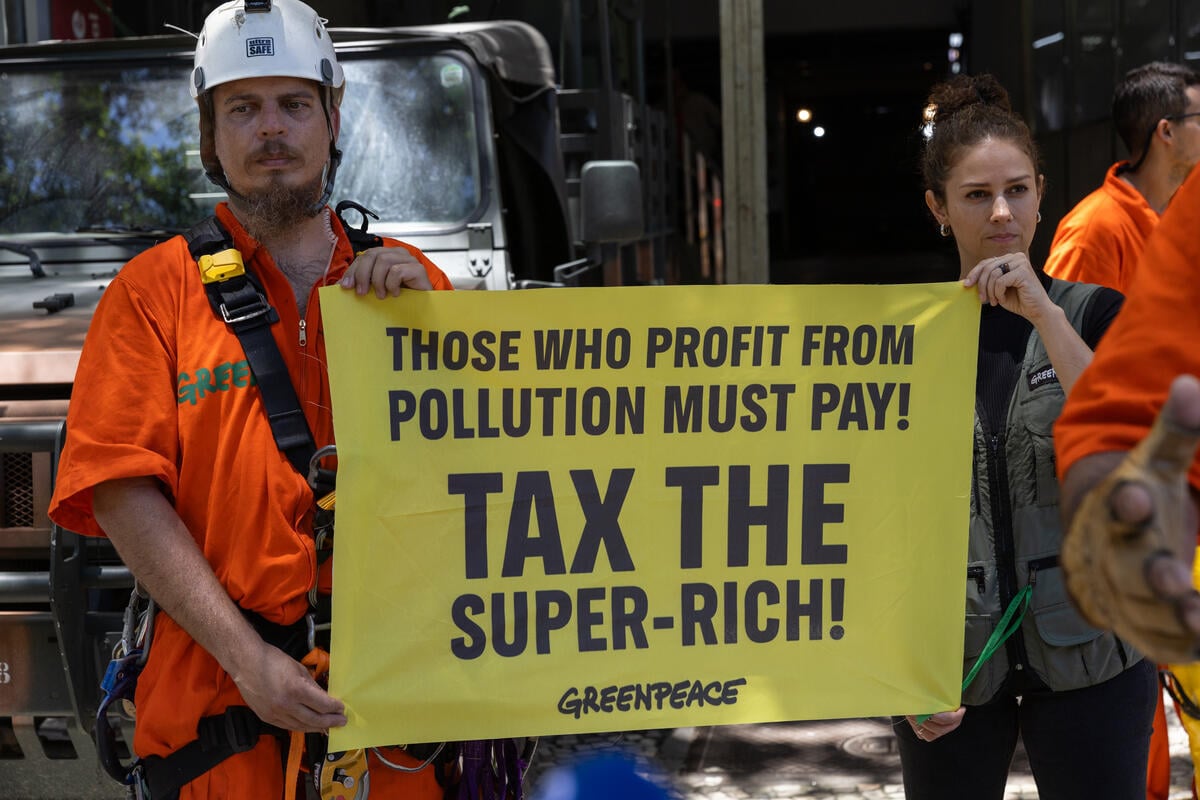The April floods in KwaZulu Natal caused the unnecessary loss of over 70 lives. It was a tragic moment for the province, and the country, as we mourned lost family members, friends, neighbours and fellow citizens. Tropical Cyclones Idai and Kenneth were fervid reminders that our ecosystem is becoming more and more erratic and sensitive; that climate change, driven by human activity, is wreaking havoc and pain; that one life lost to the unfolding climate emergency is one life too many.
As a result of the floods, the KwaZulu Natal coastline exposed the full extent of the plastic scourge. We saw our beaches, river mouths, and the Durban harbour decorated with a kaleidoscope of single-use plastic products. Splashed across our social media, we were confronted, head to ugle head, with the horrors we are inflicting on our environment. The floods merely reminded us of the scale of plastic pollution downstream. Finally, people began to ask questions: where did all of this plastic come from?
The simple answer is this: the plastic is carried by flood waters from wherever we, as users, decide to discard it. However, also highlighted is the complexity of the problem; we need to address not only our behaviour, but the lack of will, systems and strategies for solving the plastic problem.
What we have seen is a pattern of mass production of mainly single-use plastics, a lack of recycling practices and businesses and government allowing the plastic monster to run amok. Cost-effectiveness is motivated by profit, whilst forcing consumers to accept plastics as an emblem of modern life. It has pushed all of us to accept a path that leads to the destruction of the living world. It is a reason that we easily allow to justify using single-use plastics as we go about our way of life – at the peril of our beautiful planet.

Consumers carry untold power to hold corporations in the throwaway industry accountable for their continued production and sale of single-use products, but that power remains a privileged one. Where skyrocketing electricity tariffs (and, in some instances, food prices) intersect with poverty, adding an extra R50 to a grocery bill for a reusable bag is a luxury of thought that many people cannot afford. Shifting the responsibility for plastic pollution to the consumer is fallacious, poor judgment. While consumers can (and should) enact their own till-point campaigns by refusing plastic bags (where they are able), this will never be enough. The responsibility lies where it always has: with megacorporations who produce, plunder, and profit.
Research tells us that a plastic bag has an average working life of 15 minutes. Meanwhile the planet is held ransom for several hundreds to thousands of years for the convenience of a few minutes. It is this convenience that companies like Nestlé and Unilever have capitalised on, and which they will cause consumers to be reprimanded for: their apparent “bad behaviour” of being coerced into a pervasive, inescapable consumer culture of single-use.
It is worth reminding ourselves that, just because plastic is recyclable, it does not guarantee that it will be recycled. In fact, only 9% of the plastic ever produced gets recycled, and that does not imply infinite recyclability, either. Only certain types of plastic can be recycled and, often, after one reuse, they cannot be recycled again. Given that 91% of all plastic waste never reaches a recycling plant, it should not surprise us when the floods come and the plastics surface.
We must decide what kind of footprints we want to leave in our wake. Thus far, we have left a trail of littered infamies behind us. We have choked our waterways with plastic around the world. Marine creatures live in oceans of plastic, which is set to soon exceed marine life in numbers. Plastic is in our water and in our food and even in our own bodies as micro-plastic. Scientists are only just beginning to research and understand the implications of this. Should scientists get to spelling out human impacts before we understand the impacts of plastic on the entire existing natural chain?
We have an opportunity to introduce innovative solutions that will also change our consumer behaviour. South African corporates, businesses and retailers have the opportunity to lead this effort if they are committed to reducing pollution in our environment and water streams. These solutions could include reusable packaging, innovative delivery systems, and a complete overhaul of the current business models. Reusable containers for end-user products for water dispensers, for example, could allow consumers to fill their own reusable bottles.
To seek solutions, Greenpeace Africa has declared that there should be an end to the use of single-use products and, while that may start with ordinary people, the ultimate responsibility lies with businesses to make ethical choices that will not drown the Earth in waste. Greenpeace exists because this fragile Earth deserves a voice. It needs solutions. It needs change. It needs action.




Discussion
Please contact me regarding this. I am developing an environmental sustainable alternative which will address this problem by establishing a cradle to cradle alternative.